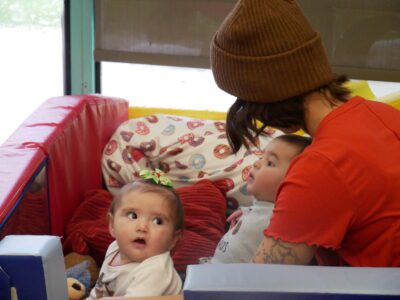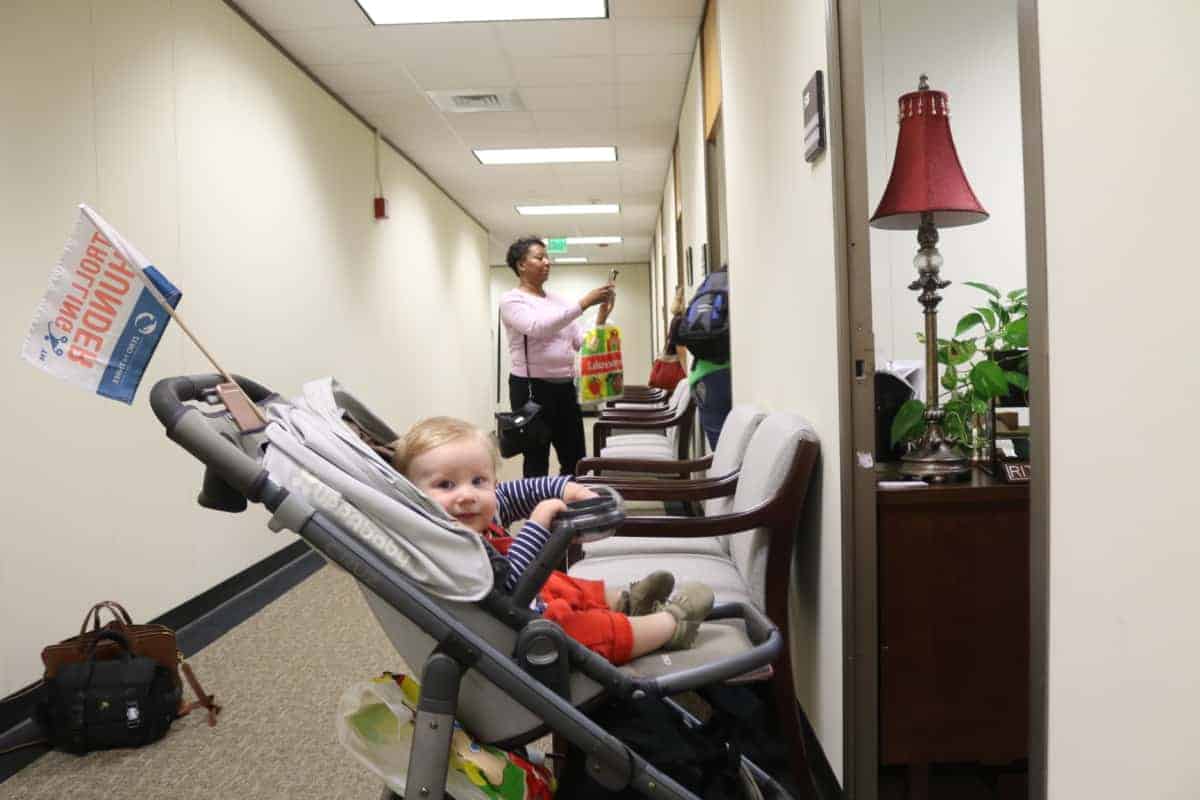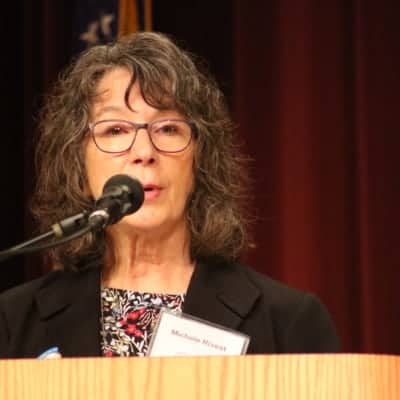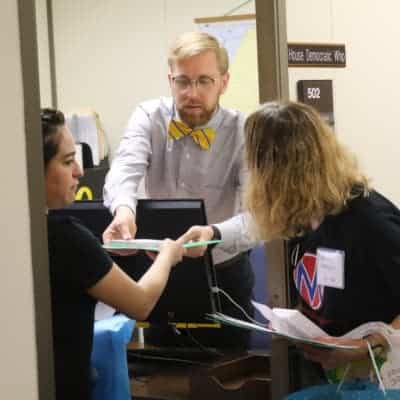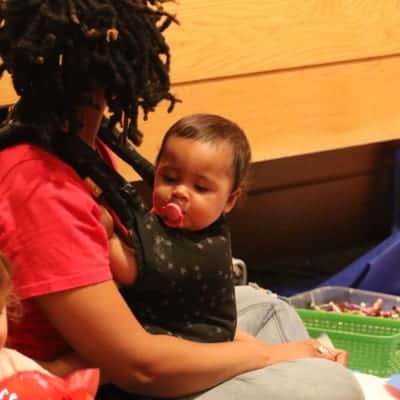Carey Rudell, a mother of three in Cary, spends more than $2,000 a month on child care for her two children. While she was out of work on unpaid leave after the birth of one of her children, she missed a promotion.
“The demands on working families are crushing, and the stress is enormous,” Rudell said to a room full of dozens of early childhood advocates and educators, mothers, and policymakers Tuesday. ThinkBabiesNC, a campaign created by Zero to Three that is now in six states, held an advocacy day to push for access to affordable and high-quality early learning and care, family-friendly workplace policies, and better training and compensation for early childhood educators.
As momentum across business, education, and health has pushed early childhood education to the forefront of policy discussions in North Carolina, some advocates say it is time to focus specifically on infants and toddlers.
Michele Rivest, NC Early Education Coalition’s policy director, said policies and programs that promote the health and development of children in the first three years of life need as much attention as those that affect children right before kindergarten.
“It really builds that continuum,” Rivest said. “So when babies get off to a good start in those first three years — we know that’s when their brains are developed most rapidly — so if we can get them off to a great start in those first couple of years, then they’re going to sail on into kindergarten and be successful third-grade readers. We don’t want that four-year-old preschool program to be their only opportunity to get ready when there’s so much more that we could do and can do if we start even earlier.”
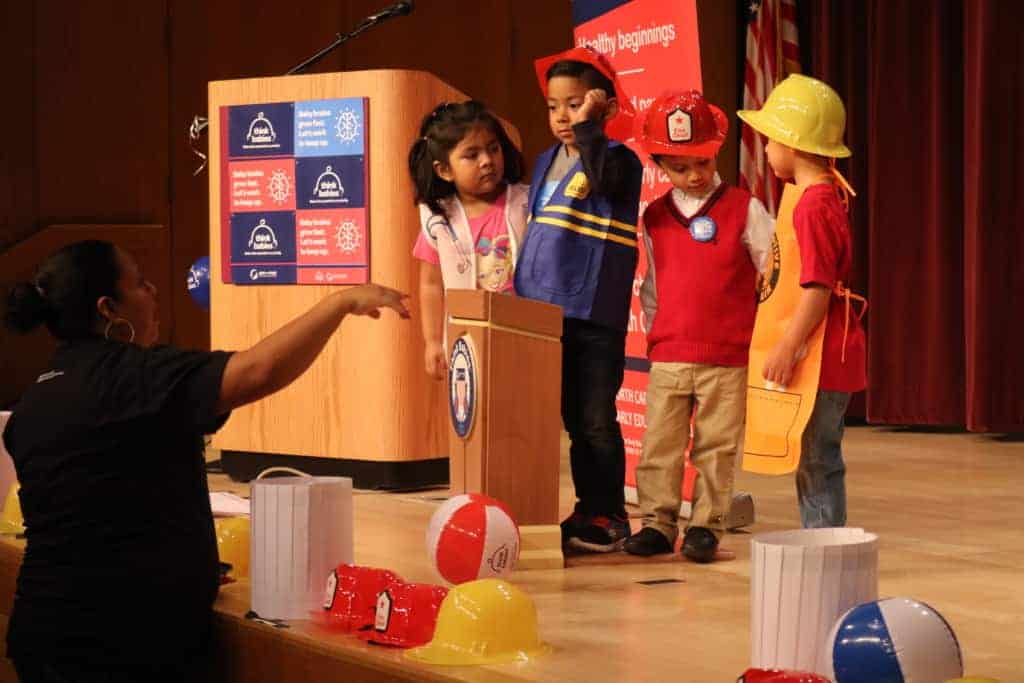
Jennifer Jennings-Shaffer, Zero to Three’s senior campaign manager, said the national organization selected five other states for ThinkBabies campaigns besides North Carolina: Colorado, Georgia, New Jersey, Rhode Island, and Washington.
“We know the best opportunity to impact a child’s life outcomes — academic, social emotional, physical — is early, even before birth,” Jennings-Shaffer said. “And we know that investing in giving every single baby the best possible chance to succeed is going to build a better future for all of us.”
Several legislators showed up Tuesday to show their support for the group’s legislative priorities, which include expanding Medicaid, implementing workplace accommodations for pregnant employees and paid medical leave after birth, expanding home visiting programs, increasing funding for child care subsidy programs, and increasing compensation and training of early childhood teachers.
Rep. Graig Meyer, D-Orange, said he is introducing legislation that would offer 12 weeks of paid leave for either parent after birth or adoption. The bill would give 18 weeks of paid leave for an individual with an illness or one in the family and 26 weeks for the care of an injured military member.
“Paid family leave is actually one of the most popular possible policies that there is,” Meyer said. “When you poll all the things, what people agree upon, paid family leave is one of the highest-polling things. It’s hard to believe that the United States is one of only seven countries in the world that has no paid family leave policy.”
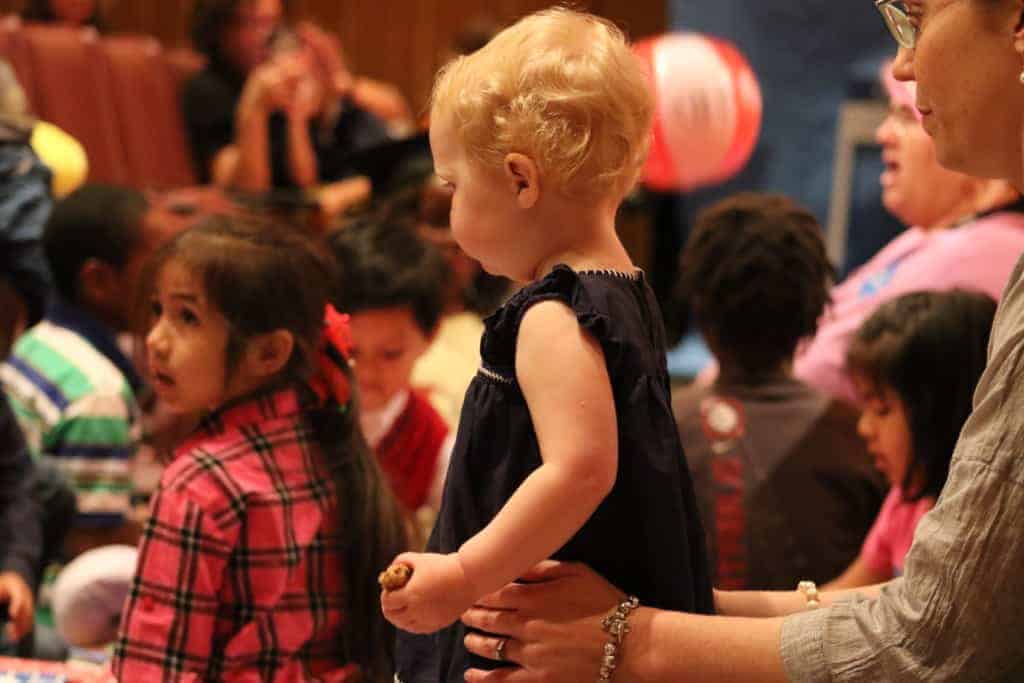
Rivest said ThinkBabies supports several bills introduced this session, and advocates Tuesday went from office to office telling legislators of their concerns and the legislation they support.
House Bill 5 (Senate Bill 3) expands eligibility criteria for Medicaid coverage. Senate Bill 558 provides workplace accommodations for pregnant employees and protections against discrimination of pregnant employees. House Bill 124 (Senate Bill 336) gives $20 million to local partnerships of the NC Partnership for Children for each of the next two fiscal years. House Bill 379 gives $4.7 million to the Nurse-Family Partnership for the expansion of home visiting services. Senate Bill 130 gives state employees up to six weeks of paid parental leave. Senate Bill 634 would require qualifications for early childhood staff, incentivize programs to increase teacher pay and education requirements, and develop a child care program for infants and toddlers modeled after NC Pre-K, the state’s publicly funded preschool for at-risk four-year-olds.

Rivest said she is particularly excited about the last piece of legislation, Senate Bill 634, whose primary sponsor is Sen. Ralph Hise, R-Mitchell. “It will transform the field,” she said.
The legislation would require specific certificates for infant-toddler and preschool teachers. The bill’s language says the state has not raised the minimum education levels of early childhood educators since 1999.
“This would be the first ever early childhood workforce bill,” Rivest said. “That’s big historic ground… It’s saying teachers need basic educational skillsets, which we know, but would be putting it in law. So that’s pretty big.”
Rep. Joe Sam Queen, D- Haywood; Rep. Allison Dahle, D-Wake; Rep. Rachel Hunt, D-Mecklenburg; and Rep. Julie Von Haefen, D-Wake also showed up to read books and show support for early childhood initiatives.
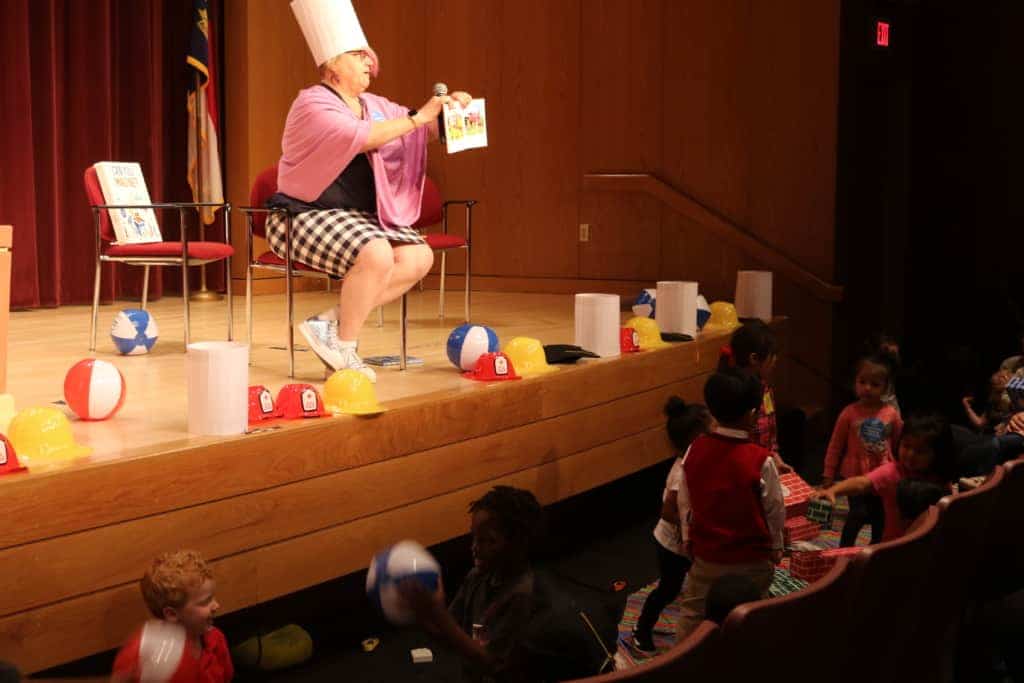
Susan Perry-Manning, Principal Deputy Secretary at the Department of Health and Human Services, spoke in support of Gov. Roy Cooper’s budget proposal and encouraged the advocates to fight for more access to child care, preschool, and health care for infants and families.
“We need justice in early childhood,” Perry-Manning said. “Until every family that needs it has access to high quality affordable child care, and we know right now that we’ve got 30,000 children on our child care subsidy waitlist and are serving only a fraction of the children who are eligible. Until every child has access to high quality pre-K, and we know right now that we’re serving less than half of the 63,000 eligible kids in our state. Until your race or your zip code doesn’t determine if your babies will die at a rate twice as high as white babies in our state. Until every early childhood educator has a living wage, benefits, and access to health care, our work is not done.”
All the pieces of legislation backed by the advocacy group have only been filed and passed first readings. Check back for EducationNC coverage of the bills if they are heard in committees. Rivest acknowledged that their priorities are up against competition this session.
“The thing is there is no guarantee that any of these issues will actually make it all the way to the finish line,” she said. “These issues will be competing with hundreds of other issues that are also so important for our state, but what’s more important than babies? So it’s up to us, every one of you, to make sure legislators know that these issues that we’re talking about today must become their top priorities.”
Recommended reading
